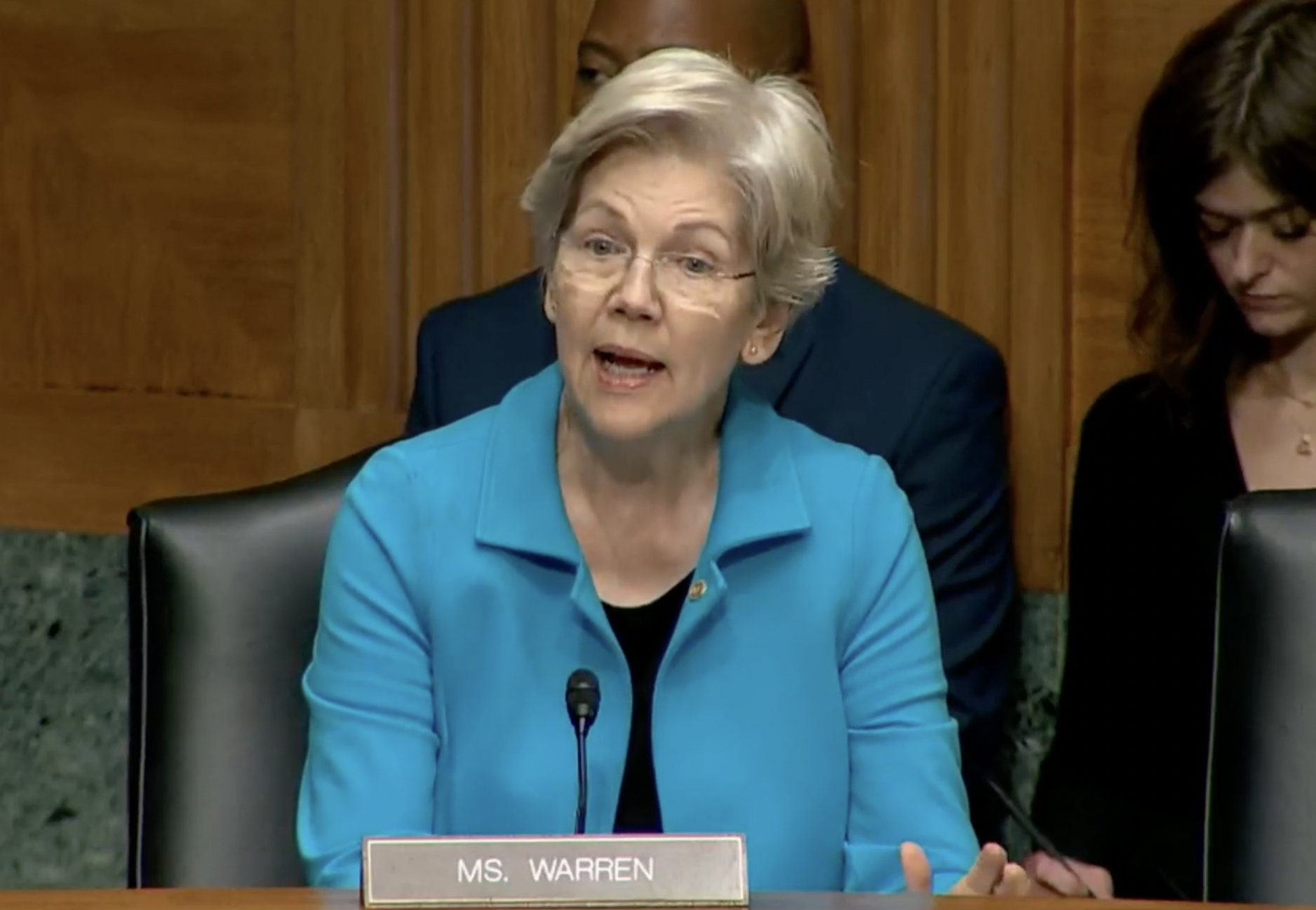Blog
ICYMI: Rhetoric vs Reality at Senate Banking’s Junk Fee Hearing

At their hearing on “Fees and Tactics Impacting Americans’ Wallets,” Senate Banking Democrats ensured credit card companies and predatory industries didn’t get the last word on one of their most abusive tactics – junk fees.
So, what are junk fees? You might know them best as the hidden fees attached to concert tickets, airline fares, and hotel bills. However, for many low-income consumers, they come in the form of punitive late fees that can cost them as much as $41 for payment made just a few hours late.
Although their exploitation is obvious, big banks and credit card companies have escalated PR and lobbying efforts in defense of their money-making charges after the Consumer Financial Protection Bureau (CFPB) released a proposed rule in February 2023 that would cap most credit card late fees to $8 — saving American families $9 billion every year.
One of the financial service industry’s slimiest lines of defense: taking to the public comments for the CFPB’s rule to flood it with letters in staunch opposition to saving consumers money.
Meanwhile, thanks to their MAGA allies on the Senate Banking Committee and the House Financial Services Committee, Big Banking has industry mouthpieces in Congress bending over backward to defend junk fees.
Here’s a dose of reality on junk fees from our latest report and Senate Banking Democrats:
RHETORIC: Industry groups, including the Consumer Bankers Association and Independent Community Bankers of America, have argued that “junk fees” simply do not exist, calling the CFPB’s rulemaking “misguided.”
REALITY: Academics point out that these excessive fees were created in the 1990s – as late fee revenue for credit card issuers dramatically climbed from $1.7 billion in 1996 to $7.3 billion by 2001. By 2022, CFPB data showed late fees had cost consumers $12 billion.
Junk fees certainly aren’t invisible to consumers or the CFPB. As Senator Warren pointed out, the agency keeps catching big banks like Bank of America and Wells Fargo red-handed as they abuse customers with outrageous tricks and fees.
RHETORIC: The financial industry argues that the CFPB’s credit rule would be “especially” harmful “for the most vulnerable consumers.”
REALITY: As Senator Warnock made clear, “junk fees are keeping hard-working Americans out of our financial system, particularly those who are already living on the edge of the economy.”
Data collected by the CFPB shows that low-income and Black-majority communities are already the most impacted by high credit card late fees – and they are far from just inconvenient expenses. As Senator Warnock noted, “one-third of unbanked households cite high fees as the reason that they remain without a bank account.”
RHETORIC: The industry argues that lowering credit card late fees would create fewer incentives for Americans to make payments on time.
REALITY: After the CARD Act’s regulations on late fee payments were implemented, research shows that the rules did not cause Americans to be “less careful in avoiding [credit card late] fees.”
As Senator Warnock put it, “there is a difference between offering a service that will lend a hand and offering a service that will kick someone while they are down.” When credit card penalties currently cost Americans close to $12 billion a year, the CFPB’s cap of $8 would simply make it easier for Americans to get back on their feet.
Follow us on Twitter and Threads for more on junk fees, the CFPB’s advocacy on behalf of American consumers, and the Wall Street special interests plotting to protect predatory schemes.
